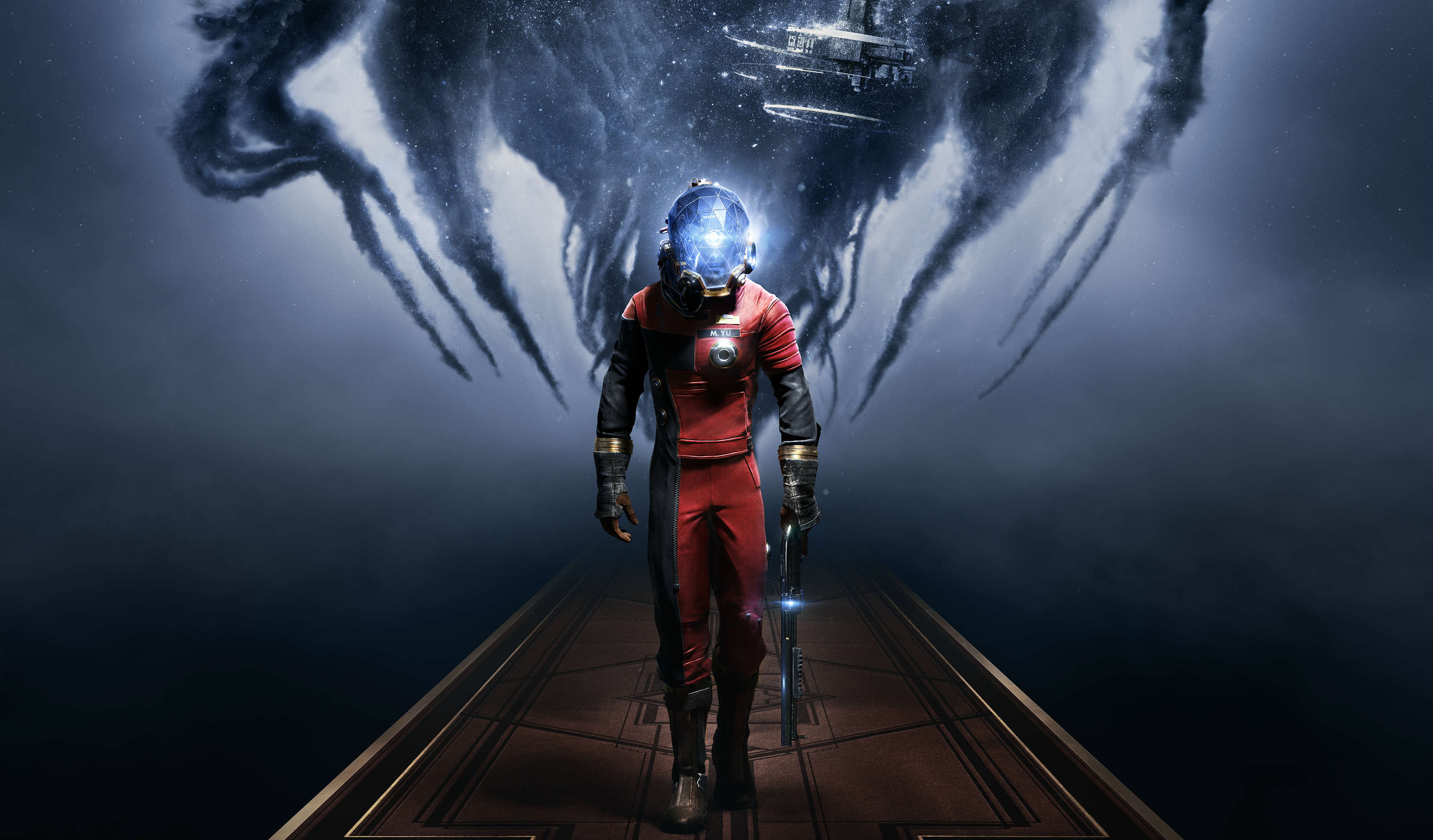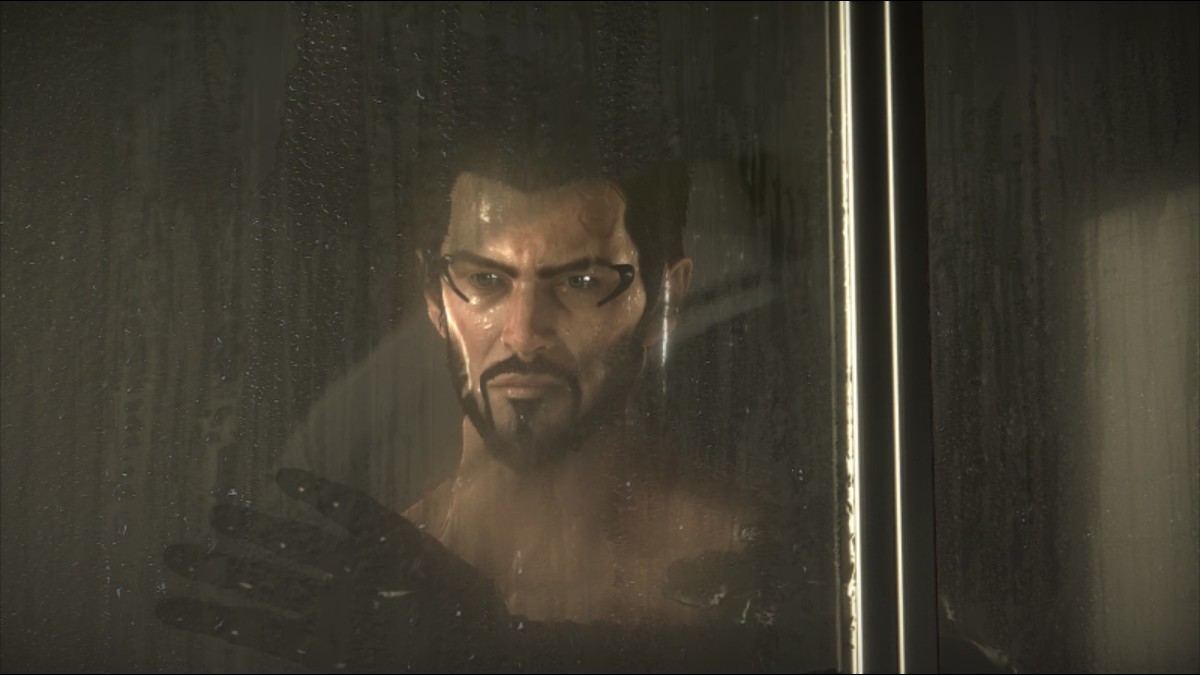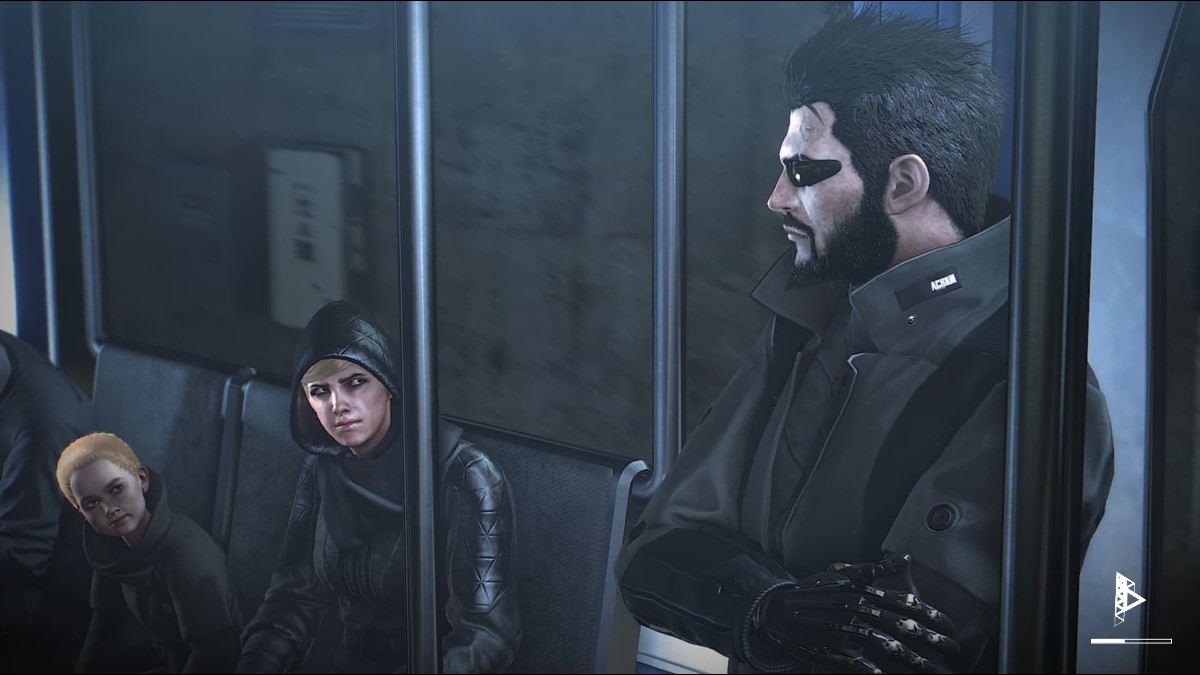Prey vs. Deus Ex: Mankind Divided: why one intro works and the other doesn't
An analysis of the opening minutes of two games shows why one succeeds and the other disappoints.

Tom Francis is a former writer for PC Gamer and current game developer. He's played Prey and Deus Ex: Mankind Divided, and has some thoughts about the two games' introductory levels. After publishing his analysis on his personal website, he agreed to let us reproduce it here (with a few minor edits) including two narrated videos. Tom's next game is Tactical Breach Wizards.
The start of Prey is one of very few narrative-based game intros that really worked for me. And it comes not that long after one in the same genre that especially didn’t—Deus Ex: Mankind Divided. So I thought it might be interesting to replay both and compare what works and what doesn’t. Not to pick on Mankind Divided—I loved the game after the stumbling start—but just because you can be more specific with praise if you have something to contrast it against.
I talked through my thoughts on both intros as I replayed them in the videos here, and I’ll summarise and add some conclusions through the magic of text. Obviously both parts of this post spoil the intros to these games.
Prey
- No intro cut-scene, you’re in control right away.
- Starting in your apartment gives you a safe place to play around, and a few hints at who you are in this world.
- If you’re intrigued, there are emails to read for more background, but the game is not held up for this exposition if you don’t want it.
The mysteries are big, and central to you:
- Who am I in this world?
- What is my brother’s work and what’s my part in it?
- What are these tests for, and why is everyone so surprised when I do the obvious solution?
For each, you get enough info to speculate but not enough to clear it up, and they’re all intriguing to me.
- The tests are framed as a thing you must do before you can go to space and Talos 1, treating that as an exciting reward. Going to space is exciting, I relate to this motivation. And it makes it cooler to be there, especially as it comes sooner than you’re led to believe.
- Waking up as if the day is repeating raises further intriguing questions about your place in this world—especially when you realise it isn’t.
- Breaking the glass is a great visual reveal: your first dramatic action is also the game’s most dramatic revelation so far.
- Behind the scenes, all the notes, e-mails and environmental storytelling are interesting because they’re about you or people directly related to you, and feed into your many pressing questions about what’s going on.
- I didn’t get to it in the video, but later when you emerge into the lobby, that’s a big, beautiful, visual reveal of a big piece of information—or a satisfying confirmation of what you’ve already twigged through your own investigations.
Deus Ex: Mankind Divided
- Non-interactive intro cut scene.
- Starts with a news report about a terrorist incident, layered over footage of unknown men attacking other unknown men. Same incident? Seemingly not. Same men? Maybe. What’s this incident? Don’t know yet. Trying to tell two stories at once, and both are just ‘terrorists do bad things’ so far.
- Long, talky briefing, all tell and no show. We’re going after an arms dealer. He’s selling to some faction. One team is gonna do one thing, I’m gonna… block? An entrance? To keep the Jinn out? Aren’t the Jinn already there? Isn’t that who the deal is with?
- Also interact with some gizmo in some way that’ll save? Our undercover agent? Why, how, which one was he again?
- Long, unusually difficult stretch of gameplay with no further explanation. What I do in the level seems unrelated to what the briefing said: I’m not stopping the Jinn getting in, I’m moving through a level beating them up.
- Peter Serafinowicz and I keep calling each other up to be assholes to each other. I don’t like either of us.
- Get to the deal. Bad guys are there but other bad guys kill them. I must unplug a helicopter!
- I don’t know who the gold mask guys are but it doesn’t seem interesting or important. Some bad guys killed some other bad guys over some weapons. The new ones are mysterious, but to be honest I knew next to nothing about the folks they just killed either. They’re both just violent people who want weapons, that’s all the plot that’s been communicated after about 30 minutes of talking and fighting.
- Long credits sequence of disjointed news reports and symbolic imagery.
- Long conspirator chat that doesn’t clarify anything.
- Game suddenly goes back into intro mode, with a long non-interactive talky sequence arriving in Prague. The game’s biggest twist so far – I’m a double agent! – is never really mentioned, only indirectly implied by the nature of this conversation about Interpol logistics.
- Another inciting incident! An explosion! It doesn’t reveal or relate to anything else so far.
- In the third of three intros, you wake up in your apartment. Some of the augs you didn’t choose are disabled now but some aren’t and you can’t see which ones because that screen is broken – until you go and do a mission that’s hard and annoying without knowing what your augs are.

Lessons
Start from a place that needs no explaining
MD needs you to understand all the factions and political context of an arms deal, and a double-agent within one of them, to make sense of what you’re being asked to do and why you should care. You can’t really show that, so they just have to talk to you about it for 7 full minutes before you can start playing. The result is I didn’t really follow it and I don’t really care.
Keep up to date with the most important stories and the best deals, as picked by the PC Gamer team.
When you wake up in your apartment in Prey, all that really needs saying is that you’re going to work for your brother on a space station. The other stuff you don’t know is fun to figure out.
Unanswered questions are not automatically mysteries
Unanswered question: Who are the gold mask guys who kill the other terrorists? Mystery: Why am I waking up as if my day is repeating?
The difference is that this mystery is:
- Consequential: It matters a lot what the answer is.
- Personal: The answer will affect my character specifically.
- Hard to answer: There’s no obvious answer that isn’t interesting in itself.
With the gold mask guys, it’s not clear why it’s important who they are, they have no relation to my character yet, and a very likely answer is very boring: they’re just another group of terrorists who want weapons. If they at least didn’t take the weapons, that’d be something to pique some interest—a vendetta? A hit? But still, faction-kills-faction is always gonna struggle to rank on those three points.
Pick a reveal you can show
MD’s intro does have a cool piece of information to reveal, but it comes more than half an hour in, delivered through dialogue, and only implied. You’re a double-agent! Whoa! That makes both you and Interpol more interesting. But I learned that from a loading screen tip, after a long conversation that conveys it so indirectly I didn’t grasp it at all.

Could MD have done their reveal visually? Maybe. If your first mission had been to retrieve some vital drive, you could have a scene like:
MILLER (VO): "When you get to Prague bring it straight to my office, Jensen, we can’t take any risks."
JENSEN: "Understood."
We see him put the drive in a brown paper bag and leave the train. As soon as he steps onto the platform, he drops it in the trash. He passes a woman sitting at a cafe, touches her table as he squeezes past, and without looking at her:
JENSEN: Package is in, you’ve got 20 minutes.
We stay on Jensen as he blends into the crowd, but can see her get up as she leaves the frame.
There’d still be some Tell before and after the Show, but the reveal itself is a big, dirty betrayal we see with our own eyes.
Prey’s big reveal is that your reality is an artifice and you’re the subject of a test. That’s an easy one to show visually, and they do it with style: You unwittingly shatter the false world’s thin facade with a wrench blow.

